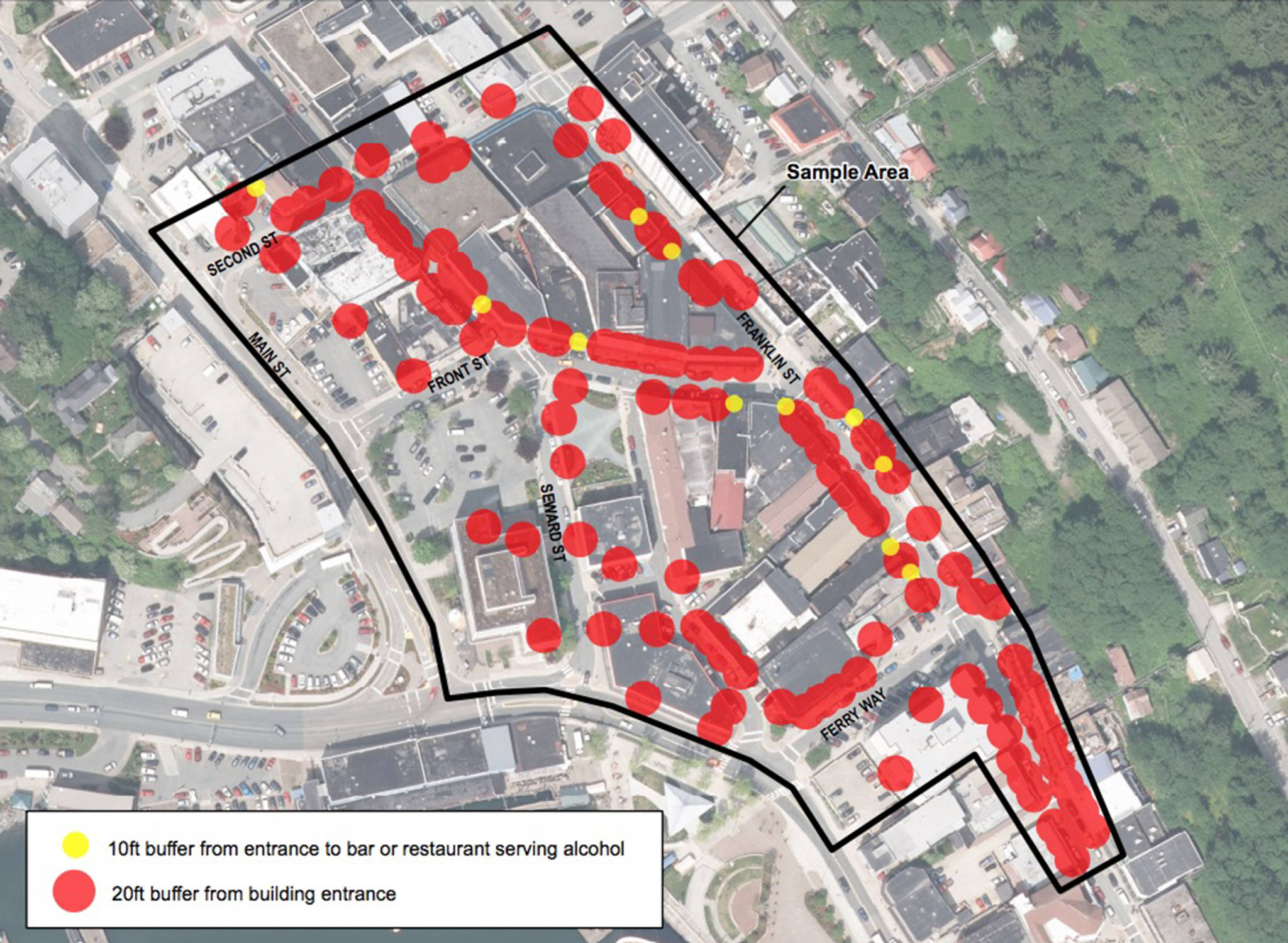It will soon be a little harder to find a place to smoke cigarettes downtown.
The City and Borough of Juneau Assembly Committee of the Whole members agreed Monday to prepare to adopt new state laws that are slightly more restrictive than the smoking laws that the CBJ has enacted since 2001. The CBJ Assembly will make the final decision at an upcoming meeting.
This comes after the Alaska Legislature passed Senate Bill 63 this spring. SB 63 is focused on banning smoking indoors, but also imposes a few other restrictions that differ slightly from Juneau’s local regulations. State law preempts the CBJ laws, so city officials are working to get city laws aligned with state laws so that there’s more local control in the ways the laws are carried out.
The main change is that people will have to be 20 feet away from a restaurant if they want to smoke, which is twice the buffer required by CBJ statute (36.30.025). Downtown Juneau, which has a heavy concentration of bars and restaurants, will now be a challenging place to smoke, according to a diagram provided to the CBJ Committee of the Whole.
City Manager Rorie Watt said the diagram is only conceptual and doesn’t take into account any vents, windows or other areas that would have to have a buffer around them.
“It would be even more dense than this,” Watt said, “but conceptually, it supports the general idea that much of downtown would not be a legal place, under state law, to smoke outside without being in the middle of the street.”
Municipal Attorney Robert Palmer said one main reason for this is for local authorities have more control over the situation, Palmer said. With regulations the same for both city and state, Juneau Police Department officers could write tickets under city law instead of under state law, Palmer said. He said that if JPD writes a ticket under city law, then the case is in the control of local prosecutors. If JPD writes a ticket under state law, local authorities have no say in how a case is prosecuted.
He also said this makes it easier for JPD and prosecutors to enforce the laws if there’s no difference between the state and local regulations.
“Sometimes it’s good to have consistent laws so there’s no ambiguity or discrepancy between the same regulation,” Palmer said.
There are a couple other differences between state and local law. SB63 prohibits smoking in an enclosed place of employment that has four or fewer employees. CBJ allows this. CBJ also allows smoking in a partially enclosed outdoor space at a place that sells alcohol and smoking within five feet of that place. SB63 prohibits that. Both of these would conform to SB63 if the Assembly decides to follow the Committee of the Whole’s recommendation.
City code is more specific and strict in a couple instances, and the Committee of the Whole members agreed that these should not be changed. Smoking in city vehicles is prohibited by local law, but is not addressed in SB63, according to materials from Monday’s meeting. Smoking in city vehicles will remain prohibited, the committee members agreed.
Indoor and outdoor areas are designated by “No Smoking” signs according to CBJ law, and that is not addressed in SB63. That will also not be changing.
The main point of conversation in Monday’s meeting was in regards to smoking in a business that sells marijuana. SB63 states that this is allowed if the state’s Alcohol and Marijuana Control Board (AMCO) rules that it is, while CBJ law prohibits smoking indoors at a business that sells marijuana. The Committee of the Whole members agreed not to address this portion of the law until AMCO makes a ruling one way or the other.
The city has been proactive when it comes to smoking laws, as the CBJ has restricted smoking in certain places since 2001. In 2008, the city expanded its smoking ordinance to prohibit smoking in private clubs that sell alcohol or food. The city defended its laws in court when the Fraternal Order of the Eagles sued the city alleging that the laws violated First Amendment and Alaska’s right to privacy. The Alaska Supreme Court disagreed and decided in favor of the CBJ in 2011.
After going through all of that, the city is now looking to change those laws. A couple of the Assembly members, including Deputy Mayor Maria Gladziszewski, expressed frustration at that.
“A part of me objects to being forced to do this when we had this ordinance first,” Gladziszewski said. “We know where people can stand and now we may be being forced into this.”
• Contact reporter Alex McCarthy at 523-2271 or amccarthy@juneauempire.com. Follow him on Twitter at @akmccarthy.

